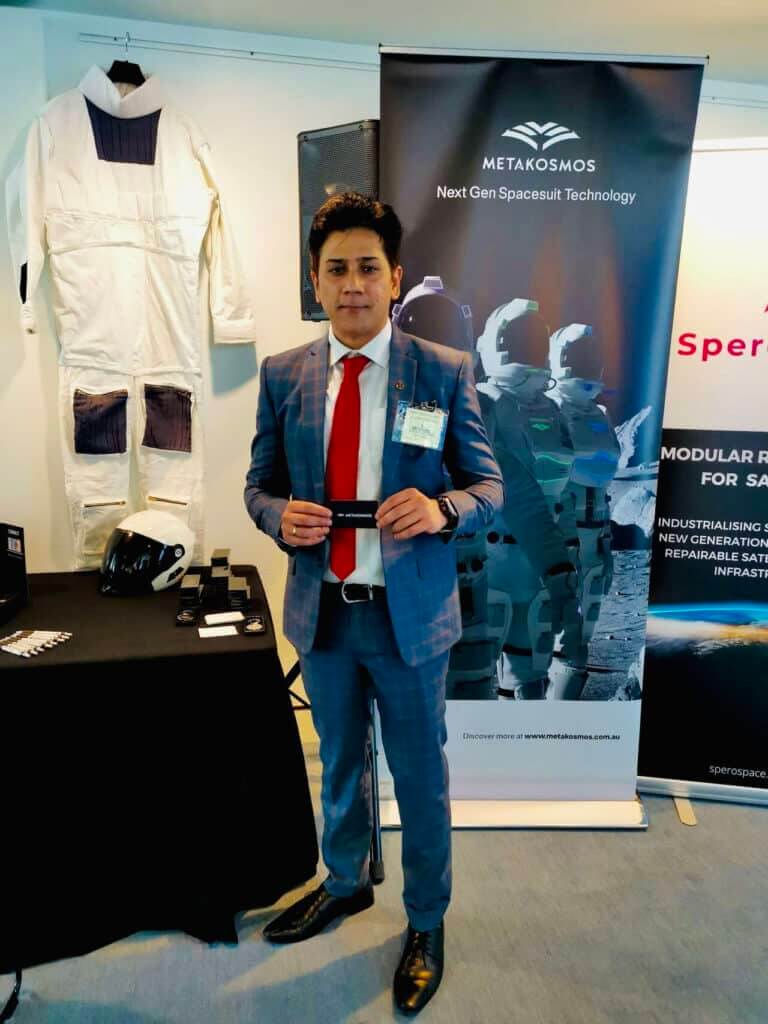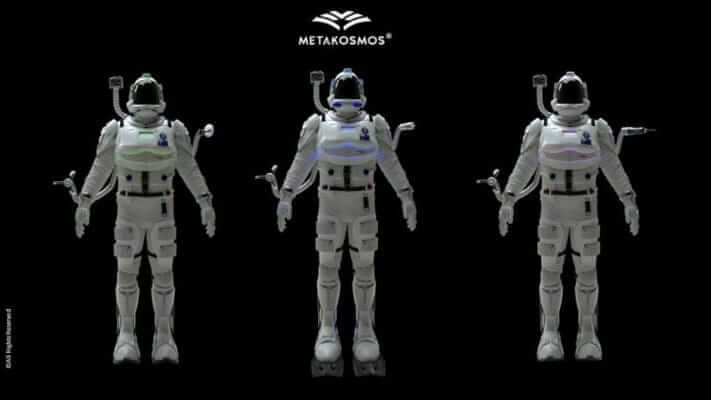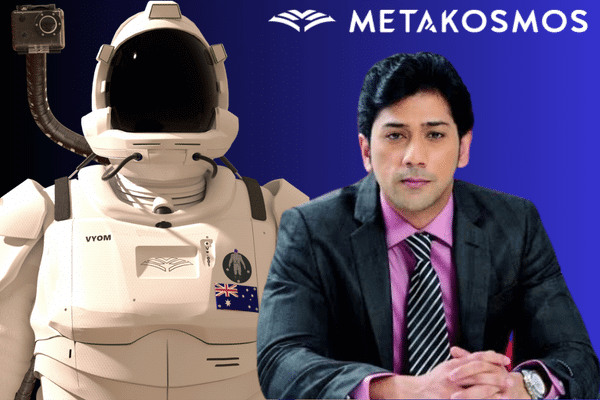If you’ve been watching the livestream of the Indian Space Research Organisation’s Chandrayaan-3 mission, you’re bound to be wondering when we’ll get to the stage of not just probes, but everyday people landing on the moon.
Metakosmos, a Sydney-based Space tech startup is one organisation bringing us closer to this reality. They’re developing next-gen ‘Kosmosuits’ aimed at reducing the barriers to space travel.
Named after the Sanskrit word for ‘sky’, Metakosmos’ ‘Vyom’ line of Kosmosuits capitalise on advancements in materials, fabrics, electronics and AI to reduce the cost of production.
“[Space travel] is considered an unattainable thing, there’s limited spots,” says Metakosmos CEO Kiriti Rambhatla. “The idea is to reduce the bottlenecks in the process, and suits happen to be a core [bottleneck]. If we can drop the production cost of spacesuits down, by an order of magnitude that’s going to open the pipeline to more people.”
Rambhatla loved DC Comics and Hollywood superhero costumes as a child, and since completing his MBA has worked in the tech industry for over 15 years. A 2017 trip to NASA’s Ames Research Centre coalesced these passions into a startup, and since 2020, Metakosmos have combined imagination and technology to revolutionise spacesuit production.
As a South Asian-led startup, Metakosmos are keen to diversify the space industry, currently dominated by European billionaires like Elon Musk and Richard Branson.
“Having diversified models and diversified thought represented in the supply chain is critical,” says Rambhatla. “There’s little effort outside of traditional space agencies, mostly in Russia, Europe or North America to focus on human spaceflight. We’re providing a platform for folks in Asia to be part of this ecosystem.”
Due to the dominance of western space agencies, current data on human body performance in space typically derives from a particular body type, making it inadequate for estimating how a diverse population might perform. In their efforts to democratise space travel, Metakosmos are deeply considering the diversity of bodies that might use their suits.

“The more people from different demographics you put inside the suit, the better your data quality will be, so you can effectively design better systems – that’s the thought process behind making these things accessible,” he says.
“It’s like if your car isn’t designed for your safety because people don’t know how it works when you’re inside the vehicle – that’s how strange it would be if you weren’t aware of the anthropometry of the demographics getting inside it.”
Metakosmos are also developing variants of their Kosmosuits called ‘Terra’ and ‘Aqua’, for use in all-terrain training, and a bioastronautics data collection software to better customise the suit.
Rambhatla argues these variants have ample terrestrial applications and can be used to understand and endure extreme weather conditions brought on by climate change.
“The aim is to improve human performance in extreme conditions; here on Earth you’ve got fires, chemically charged environments, radioactive environments. These kits could be utilised in all those conditions to understand our own planet,” he says.
“We’d love to be in space, but we say 80% of the work happens here on Earth. There aren’t many avenues to protect ourselves [from extreme weather], so these suits could potentially play a role in the future.”

Rambhatla also says space has a lot to offer the everyday citizen, with everything from television to farmland imaging managed through satellites. India might have already proved itself with the successful landing of Chandrayaan-3, but as the relevance of space technology expands, he believes South Asia will be at the forefront of this rising sector.
“India could really benefit from space investment, which would go back as benefits to the common people in terms of planning their livelihoods,” says Rambhatla. “There’s a lot of raw materials going into space products, and because of the whole Make in India drive I see a great opportunity for folks in India to get into the global supply chain, so they should consider these avenues.”
“Traditionally [space exploration] has happened through government-based organisations, but they’re opening up to private participation which should excite people. I see India playing a major role in the next five to 10 years in the private space sector.”
So when can we expect actual ‘Life on Mars’? The answer is, probably not for some time.
Rambhatla says alongside billionaire space tourism, the next few years will see the space industry focus on research and development in lower orbit, where the International Space Station currently sits. This will open opportunities for people from a diverse range of occupations to travel into space and investigate microgravity.
As for Metakosmos, Rambhatla says their Kosmosuits are currently at the stage of component testing, or what would be deemed level four on NASA’s nine tier Technology Readiness Level scale. They’re hoping to bring their land based Kosmosuit ‘Terra’ out on the market early next year.
Until then, we’ll just have to make do with space livestreams.
READ ALSO: Indian-origin British expert to head UN Outer Space Office





